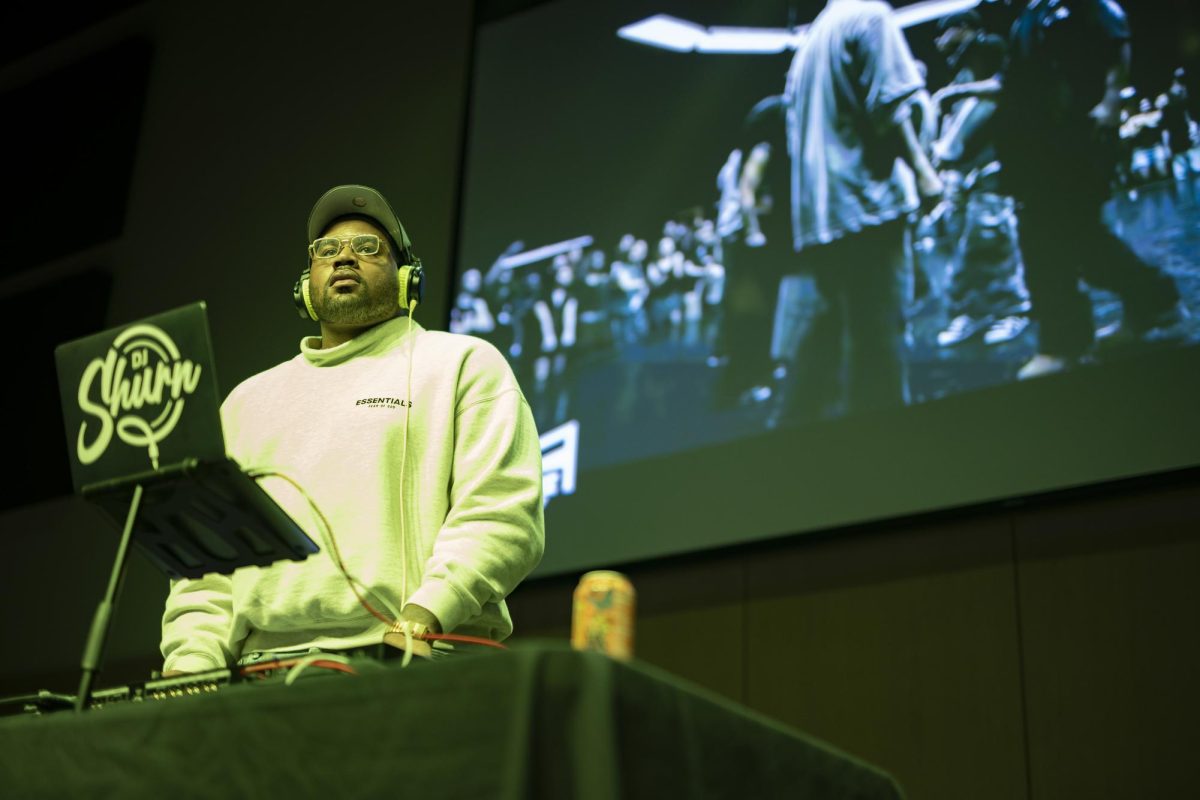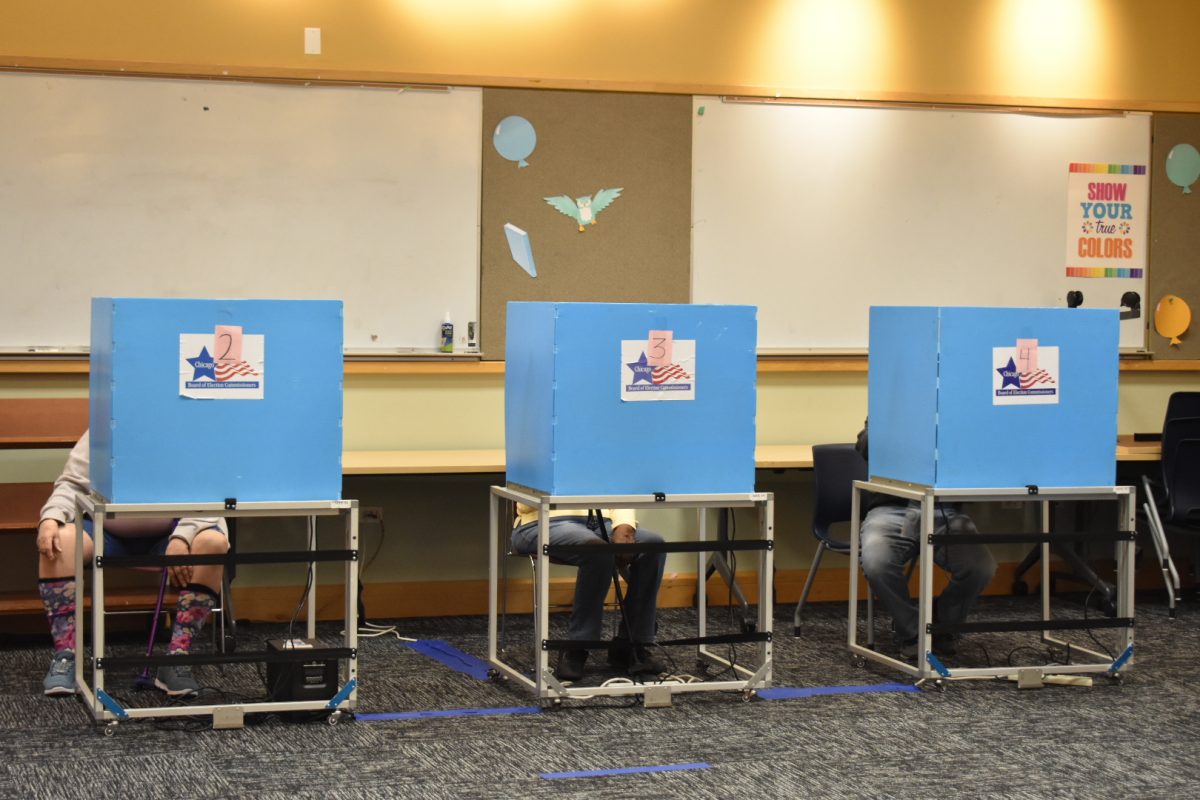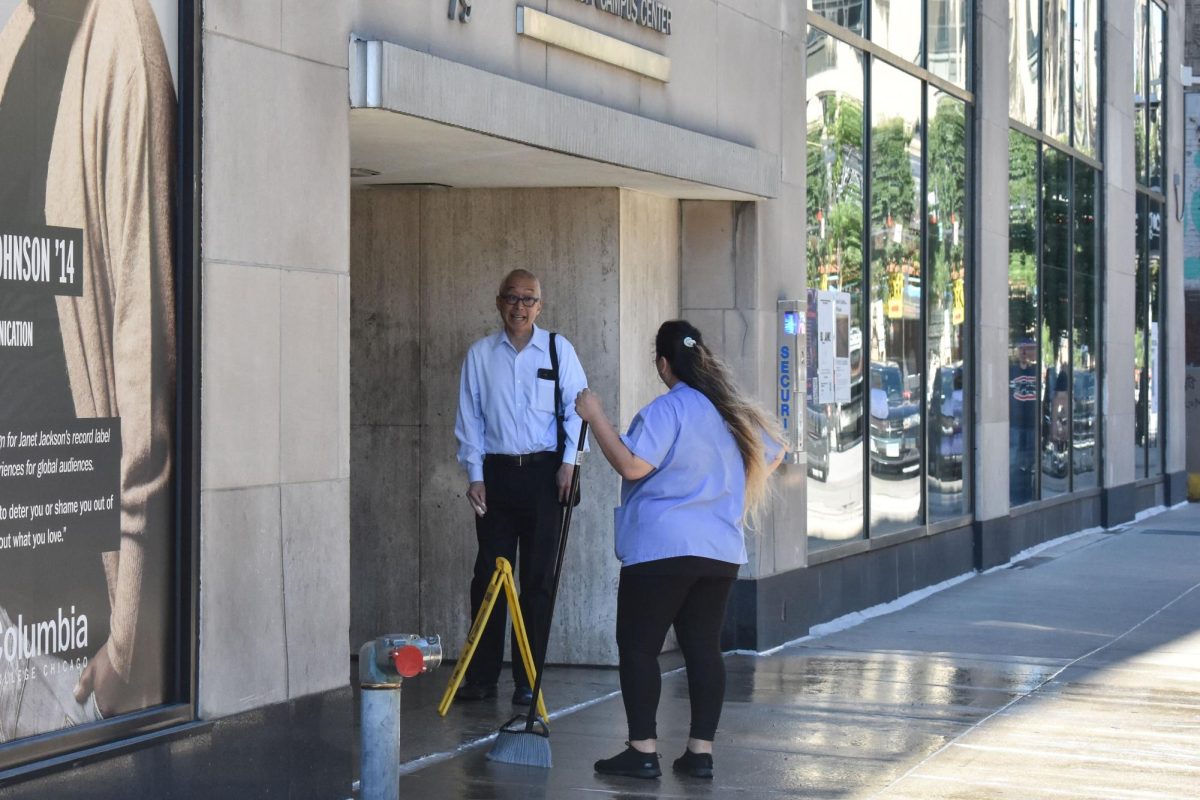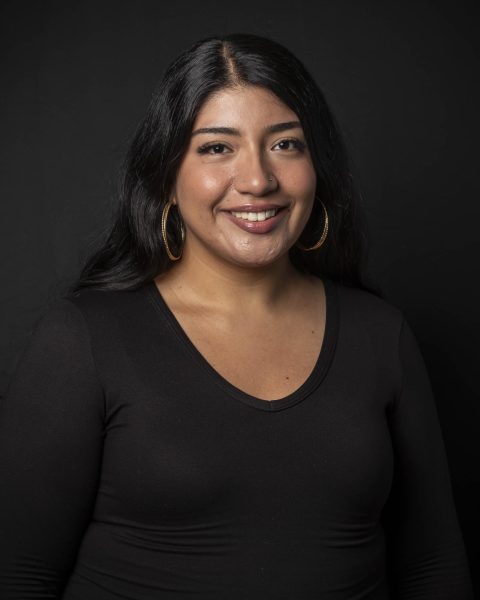THE HIP-HOP ISSUE
Columbia’s Hip-Hop Club was started in fall 2017 by a group of students in part-time professor Amina Norman-Hawkins’ class, “Hip-Hop: A Sonic History.”
The club went on to celebrate the musical genre with open mics, cyphers, collaborations and workshops. Then COVID-19 struck, and the club quickly dissolved after a quarantine was instated.
“We couldn’t meet in person and hip-hop is traditionally a very social experience,” Norman-Hawkins said, who is the club’s advisor.
There were attempts from some students to revive the club, where a few unofficial events were hosted throughout the official hiatus, but failed to re-establish.
However, about two years after the hiatus, the Hip-Hop Club is officially back this semester.
President of the club, I’ja Marie Wright, a junior marketing major, said she felt there was a need for “spaces on campus that showcase the real raw hip-hop for students.”
Like the first three presidents of the club, Wright took “Hip Hop: A Sonic History,” a course dedicated to the culture and social conditions of the genre. Hawkins said the class helped shape the way the executive board governs the club and centers it in the community.
While in the class, Wright proposed a reiteration of the club and went straight to the Student Organization Council (SOC) with the types of events planned for the semester and the mission, which is to educate students about hip-hop and “provide a platform for students to express themselves through music, poetry and other forms of artistic expression associated with hip-hop.”
The club states that hip-hop is a form of activism, cultural expression and storytelling rather than simply a genre.
One of the event coordinators, sophomore music business major CJ Young, was a member of the Hip-Hop Club during a small active window it had in Fall 2021.
Becoming part of the e-board for Young was, “an ode to freshman me,” because he did not get to experience the club as he would have liked.
He wished more people were able to attend and organize for a successful reiteration of the club, however, nothing came together until this semester. Young said the e-board is learning from past mistakes.
“We’re definitely putting the pieces together to make Hip-Hop Club work way more efficiently than it did way back when,” he said.
Compared to the last iteration, where the meetings and events were more “intimate,” Norman-Hawkins said the current e-board is hosting bigger events and engaging further with the hip-hop community.
“Their voices are being heard beyond campus whereas I feel like our earlier group was planting a seed to bring awareness on campus,” she said.
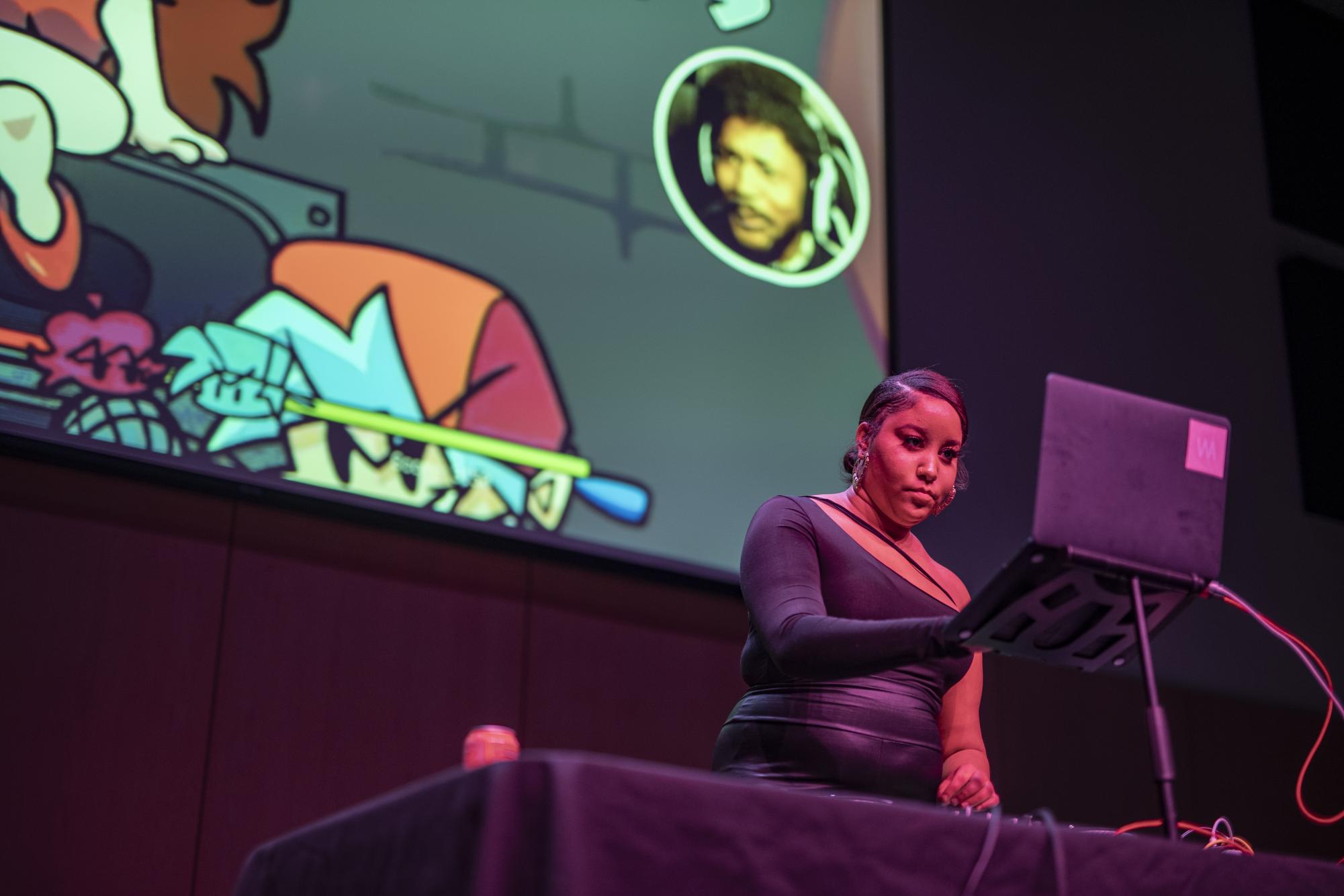
This outreach could be seen with their first official event, “Hip-Hop Convergence.” The event was an “inter-generational forum” between younger and older artists, organized to celebrate the last day of Chicago Hip-Hop History Month on July 31 at 1104 S. Wabash Ave.
This semester, the club has also hosted showcases with performances from the e-board members along with open mics, allowing students to perform.
Through these events, Wright hopes to “show the college that hip-hop is alive here on campus.”
“Step into the Rhythmic Realm” was their most recent event that took place on Nov. 9, at the Student Center, located at 754 S. Wabash Ave. The event focused on DJs, who Wright said laid the foundation of hip-hop, “without [DJs], we wouldn’t have the rhymes or none of that.”
The event was made up of five different DJ sets including performances from Wright and events coordinator and junior music major Nathan Brown.
Columbia alum and WGN Radio producer, CaSera “DJ Ca$h Era” Heining, also performed a set for the event.
Heining, who graduated the same year the Hip-Hop Club originally started, wished she had a space like the club sooner in her college career, which would have made her want to join.
“You didn’t see that much room for hip-hop or R&B or really urban anything, and the black population on campus is small as it is,” she said.
Avery Forrestall, junior film and television major and vice president of the club, said it is important to “amplify the community aspect” of hip-hop at club events, to show the genre is more than just rap music.
“The biggest thing, I think right now, is broadening other people’s horizons and showing that hip-hop can be a welcoming place, no matter the medium or form they’re involved in,” he said.
First-year music major, Alexis Delgado is a member of Hip-Hop Club and said reiterating it is “a great choice” because he believes there are not many opportunities where students can center themselves in hip-hop.
Delgado said it is especially important to have a club that celebrates hip-hop at Columbia because there are many aspiring artists at the school, who specialize in the genre, and it gives a space where like-minded students can “connect with one another” and network.
Wright said it is her priority to assure students that the club is back and has the structure it needs to “stay around for a long time.
Resumen en español:
El club de Hip-Hop de Columbia College está de regreso y más fuerte que nunca.
Esta asociación estudiantil fue fundada en otoño del 2017 por los alumnos que tomaban la clase “Hip-Hop: A Sonic History”, a cargo de la profesora adjunta Amina Norman-Hawkins.
Dos años después, la llegada del COVID-19 causó la disolución del grupo, a pesar de la gestión producida que celebraba con actividades y tributos este género musical.
“No nos podíamos reunir en persona. El hip-hop tradicionalmente es una experiencia muy social”, dijo Norman-Hawkins, la asesora del club.
La presidenta de la agrupación I’ja Marie Wright, quien es estudiante de mercadotecnia, dijo que sentía que había una necesidad de “espacios en la universidad que mostraran al verdadero hip-hop puro para los estudiantes”.
Comparando con lo que era el club original, donde las reuniones y eventos eran más “íntimos”, Norman-Hawkins dijo que están organizando eventos más grandes e interactuando más con la comunidad hip-hop. “Sus voces se escuchan más allá del campus [de nuestra universidad], mientras que siento que nuestro grupo anterior estaba plantando una semilla para generar conciencia en el campus”.


